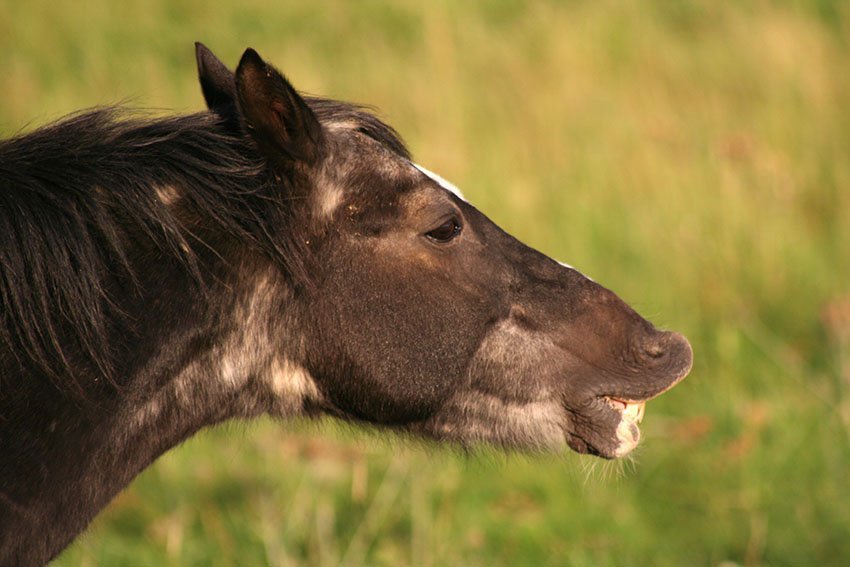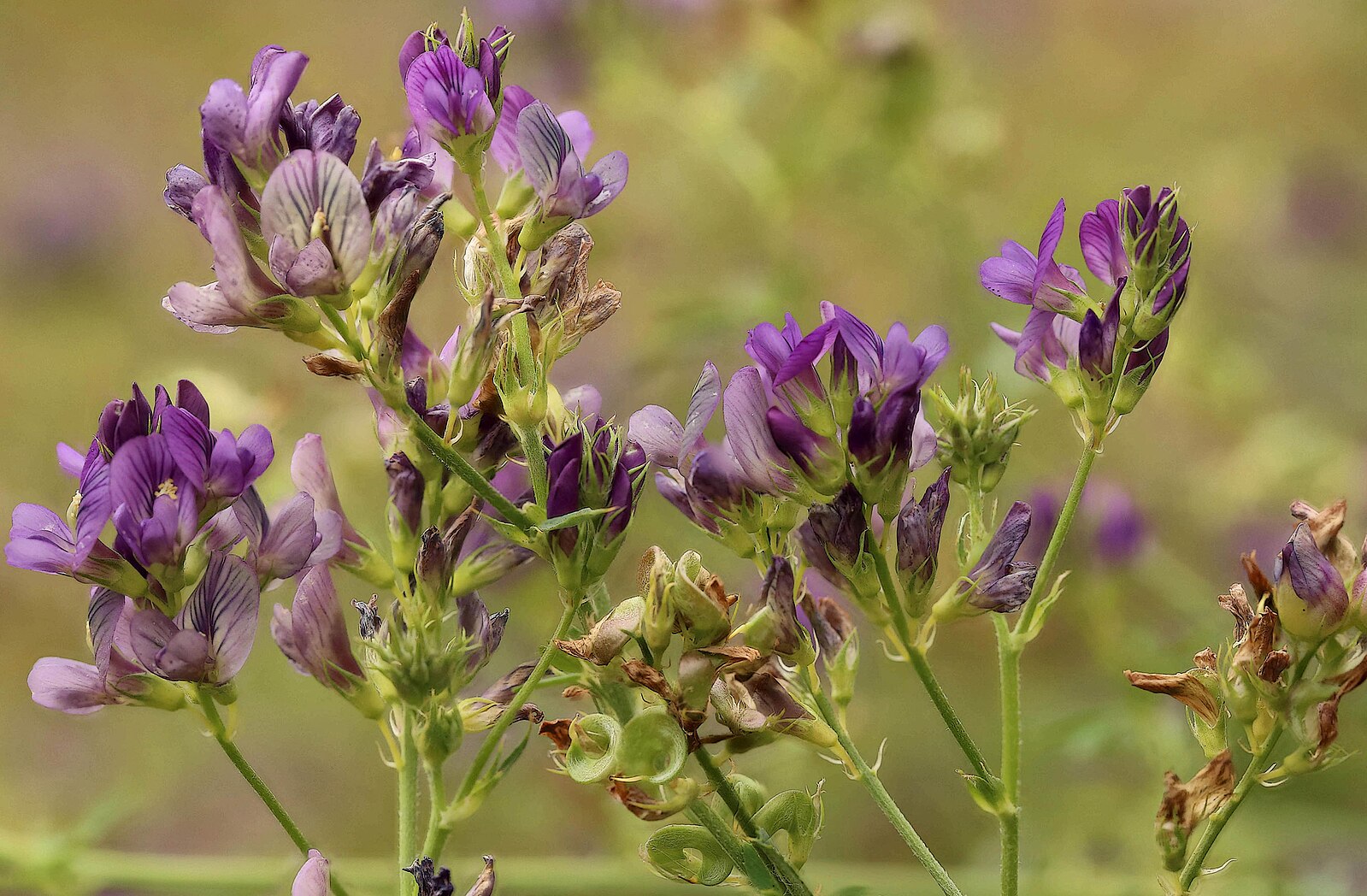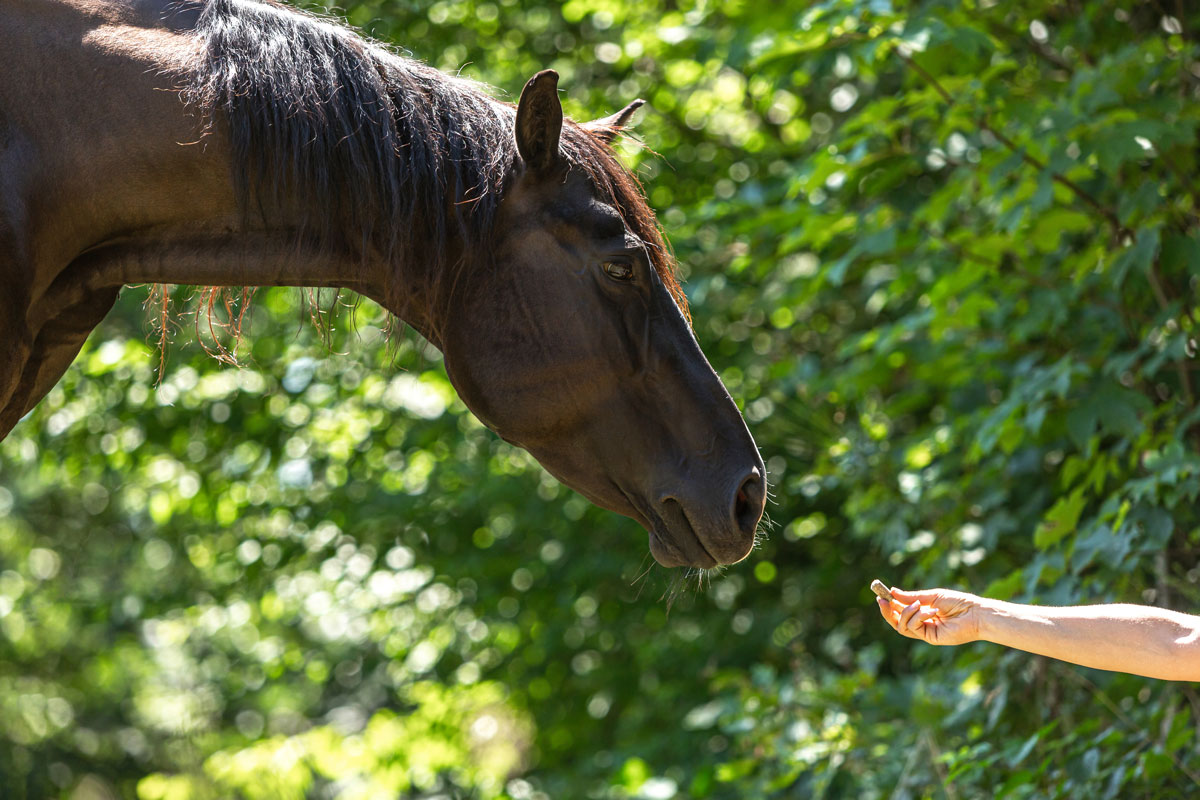Considerations and secrets in caring for our senior horses
In almost every stable, we have a senior subject: it may be the first horse from when we were children, the one who taught the whole stable how to ride, the best broodmare with a remarkable competitive past… in short, a subject that everyone is fond of and is now part of the family.
As such, he requires a special set of care in order to ensure that his old age is as smooth as possible.
We define a “senior” horse as generally above 16-18 years of age.
The owner notices that his or her horse is aging almost suddenly: within a short time he or she sees the horse is not what it used to be, and this change is almost always related to a bodily condition.
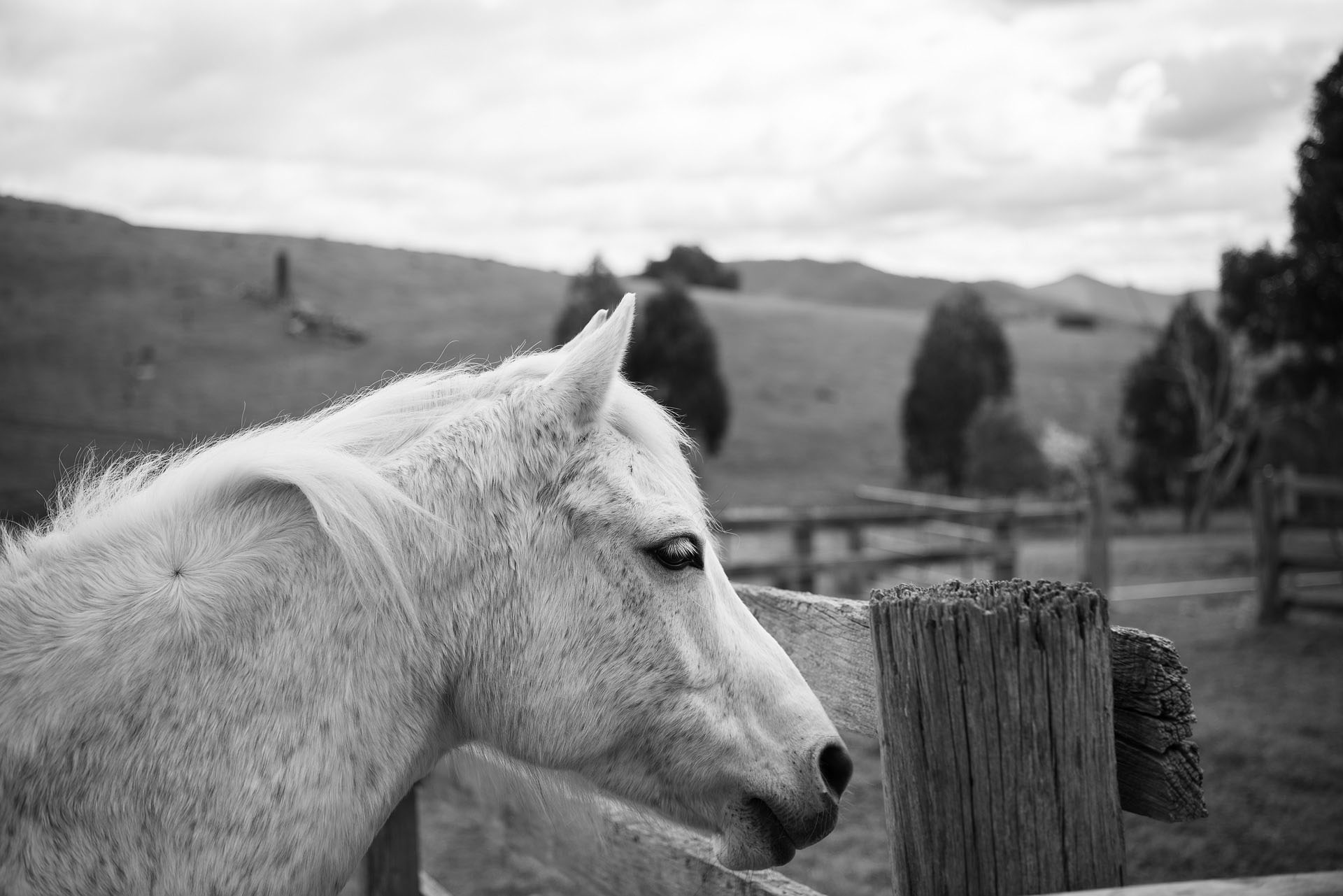
As we age, our beloved pet can go through five different problems:
1) Decreased nutrient absorption capacity.
There is a physiological alteration of the intestinal mucosa that impairs absorption capacity combined with an alteration of the microbiome.
As a result, the indigested food reaches the large intestine causing abnormal fermentation with excessive lactic acid production and subsequent decrease in ph, increasing the risk of developing colic and laminitis.
Protein digestion is another major issue: loss of muscle is one of the first things an owner notices.
If the body does not receive sufficient protein from the diet, the body will begin to take it from its own muscle tissue , losing more and more fitness.
So an old horse’s diet will have to have a higher protein intake than a young horse’s, around 14 percent, precisely because of this reduced absorption capacity.
At the same time, the quality of the protein will also have to be considered : soy, for example, is anexcellent protein source for older horses because of its high amino acid composition.
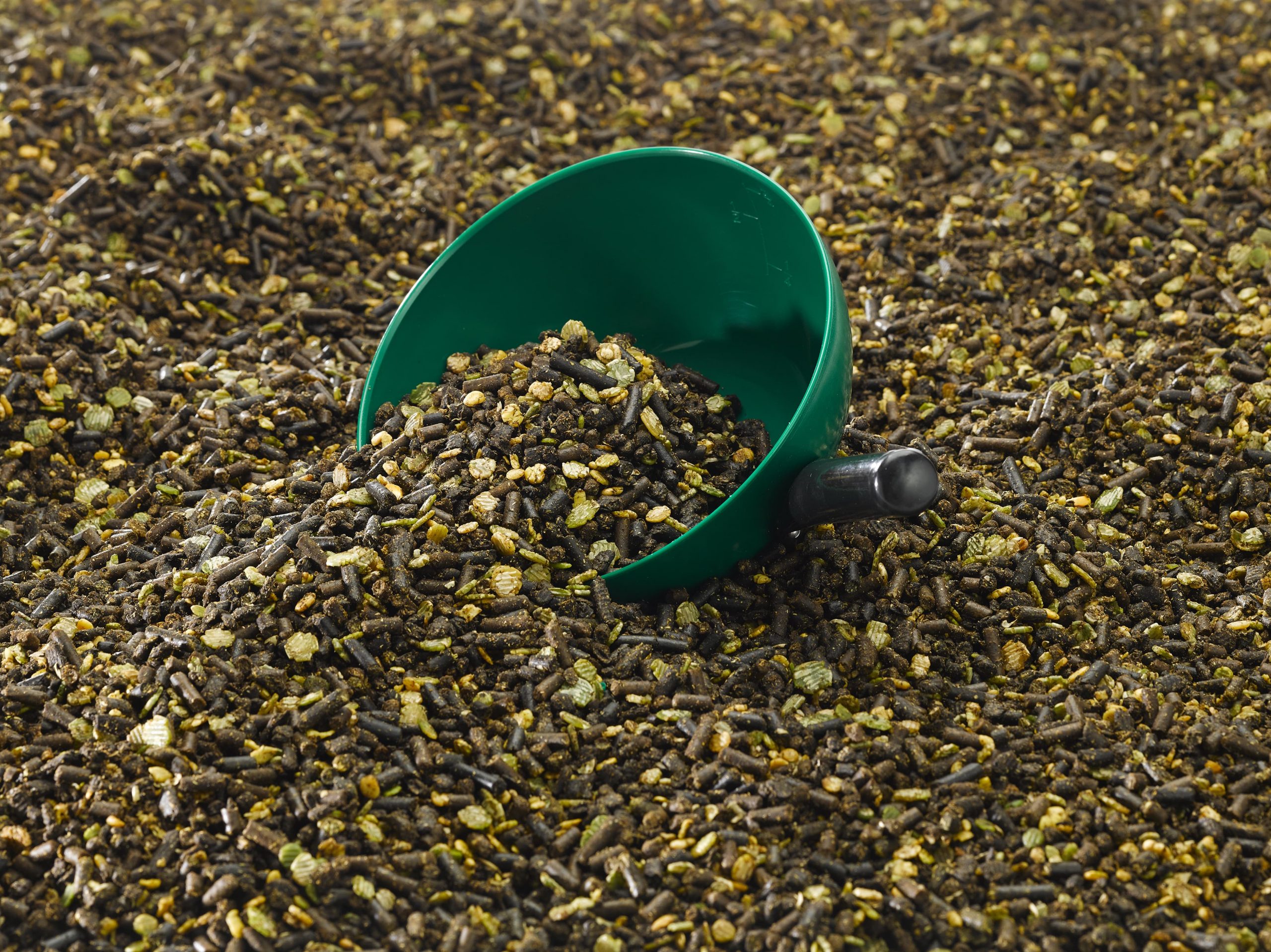
2) Problems with teething
The years also pass for horses’ teeth, which inevitably go through deterioration.
There may be fractures, changes in the chewing table, tooth roots surfacing more and more to the surface until the tooth is lost.
A couple of dental visits a year are necessary to keep the situation under control and monitor its progress.
Older horses tolerate less pain than a young horse, so any pain related to chewing may impair the ability to take food.
It will be a good idea to feed softer, short-cut foods that stimulate saliva production, which has a lubricating function for food passage and digestive function.
3) Paddock Stress.
Older animals tolerate changes poorly, especially those related to the introduction of new individuals into their herd, which inevitably generate stress especially at mealtime.
Cold weather during winter also becomes harder to bear as we age: this is mainly due to loss of body fat and thermoregulation hormone imbalances.
The most efficient heat production system is always related to fiber digestion-we guarantee excellent quality fiber and plenty of it.
In winter, water intake also decreases: to avoid constipation colic, we provide mash with lukewarm water even daily, add water to traditional feed or stimulate thirst by adding a salt bite to the feed.
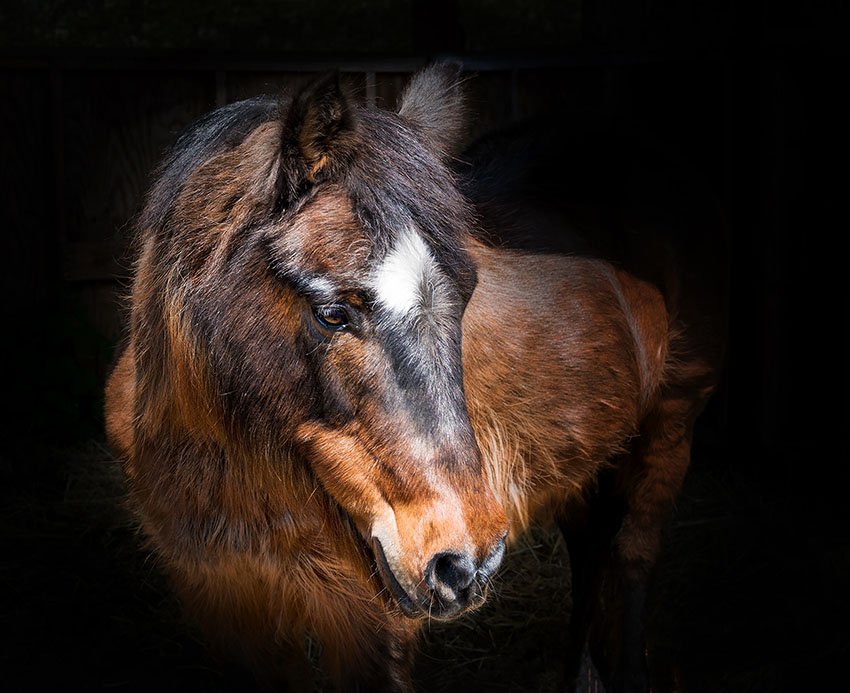
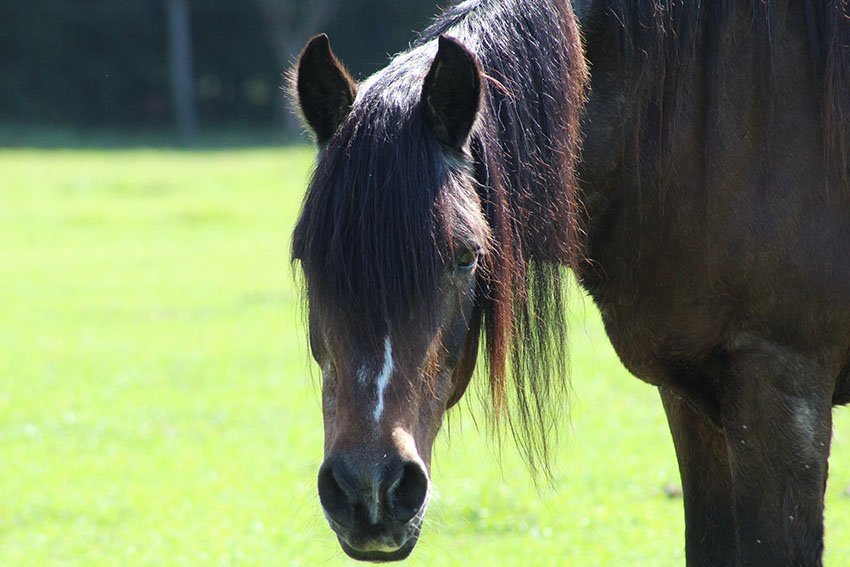
4) Pain
The main cause of pain in elderly individuals isarthritis.
The less the horse moves the more its stiffness and pain increases.
Therefore, it is advisable for him to have the opportunity to move every day as he pleases.
To increase its comfort, there are supplements on the market with natural analgesics that, when administered regularly, are a valuable aid in pain management.
At the same time, regular and careful foot management by the farrier can help ensure a smoother gait.
5) Pathologies
As with humans, there are certain diseases that tend to present themselves in old age and can affect our horse’s health: hormonal dysfunction, liver and kidney function problems, forms of cancer, depression of the immune system, respiratory disease, and anemia.
These are all situations that require specific veterinary intervention and treatment sometimes to be taken for life, but they improve or at least slow the evolution to more severe forms.
The nutrition of the aged horse
Our experts recommend paying attention to three major aspects.
- FIBRA – must be easily chewable.
Hay can be replaced with grass or hay pellets, which can also be wet to increase chewability.
Another important source of fiber can be beet pulp, properly moistened. - CONCENTRATED–must have a protein content between 12 and 16 percent, a fiber % above 12 percent, and fat % between 4 AND 6 percent to increase the caloric intake of the diet.
Always remember to divide it into as many meals as possible, at least three. - SUPPLEMENTS
– JOINT PROTECTORS AND ANALGESICS
– PREBIOTICS AND PROBIOTICS to aid digestive processes
– VITAMINS AND MINERAL SALTS to make up for any deficiencies from reduced food intake
– FATS in the form of oil to increase the caloric intake of the diet without increasing the amount of concentrate. Beware, however, of liver function and proper concomitant administration of vit. And as an antioxidant.
